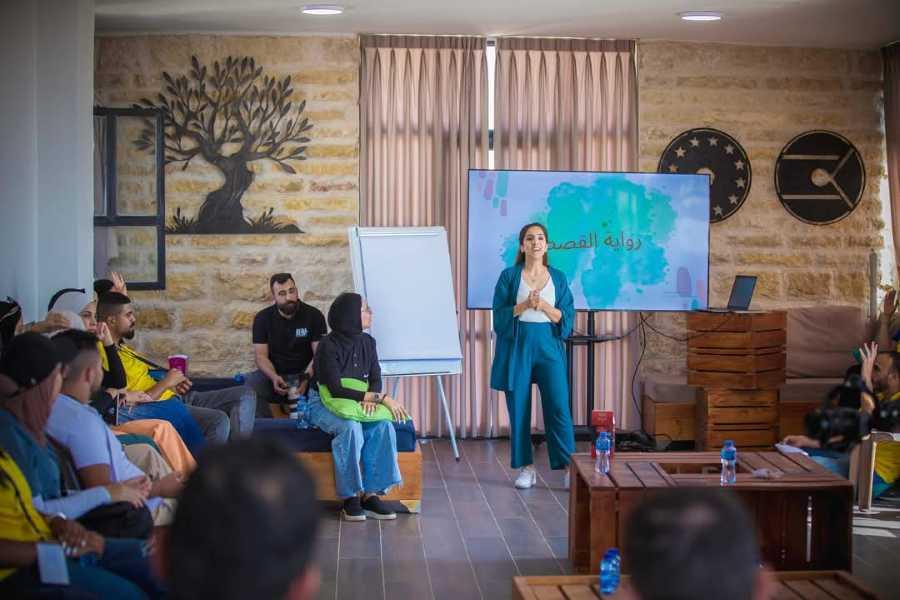The Skills Development Fund in Palestine
The workplace has changed; new industries have emerged with a focus on integrated technology; young people need the skills of resilience and creative thinking; rapid transformational change is needed in traditional industries; environmental concerns and social cohesion are a priority. Education must be more flexible and deliver the skills that individuals, the economy, and society need. To ensure that training meets the demand of the labour market as much as possible, representatives of the private sector should play a decisive role in shaping TVET. This requires a revitalised and enhanced national partnership that brings together governments, civil society, the private sector, and international actors, mobilising all available resources to increase efficiency and relevance of the TVET system. Thus, the vision is not that companies should undertake Corporate Social Responsibility (CSR) activities, but they should create shared value by systematically linking for-profit thinking with social concerns.
Context
National training funds are increasingly becoming a vehicle for financings skills development in many countries. They provide an institutional framework for collecting and allocating funding to training providers. In Palestine, recommendations from different key actors, based on the experience of previous and ongoing donor projects, policy documents and research underline the key messages of the revised TVET National Strategy (2010) of Palestine which pointed to the importance of the existence of the TVET fund and a mechanism for financing TVET. Thus:·
- TVET policies should be linked to performance standards and efficiency criteria in the implementation of TVET systems, programs, and services;·
- The need for a sustainable financing mechanism for TVET Public-private (sector) partnerships (PPPs) are a critical success factor, for establishing a funding mechanism that links skills demand and job opportunities with high quality, relevant, accessible, and flexible TVET.
1- Developing a blueprint for the mechanism development and implementation.
The Blueprint is the guide to setting up the operational model and providing tools for the implementation of The Skills Development Fund (SDF). Enabel supported the development of a ‘Blueprint for a Skills Development Fund’ in Palestine in late 2020. The blueprint was developed in a collaborative way and through a co-creational process, involving private and public partners, government agencies, donors, private sector umbrella organisations (PSUOs), universities, private and governmental vocational training providers. Their contribution was crucial and demonstrated a huge desire to change and improve the system. The SDF vision is that joint ventures between the private sector and the training providers will lead to the delivery of demand driven training based on an analysis of the local labour market and the articulated needs of specific sectors. The SDF aims to create an environment that encourages training providers to supply the skills that society and the economy need and will facilitate collaborative public private partnerships.
The purpose of the SDF is to finance actions for specific skills training initiatives proposed by the private sector. The focus for finance will be:
• Improvements in the quality, access and relevance of existing skills development systems
• The introduction of new demand driven skills• Innovative approaches and good practices in skills development and employment creation especially where these target vulnerable youth, women and girls.
2- Piloting the mechanism through grants to the PSUOsEnabel funds to PSUOs to pilot demand-driven training programs through the partnership with a vocational training institution.
Implementing 23 grants through the private sector PSOUs and sectoral bodies, building the capacity of these organisations - mainly on the PPP and Work Based Learning (WBL), test the SDF blueprint and approach to learn from experience and establish good practices to proceed with step 3.
3- Supporting the governance and sustainability of the SDFA sustainable mechanism: sustainable financing and technical support system for skills development for the whole country. The establishment of the new “TVET Commission” in the course of 2021 as an overarching TVET body should guarantee sustainable skills financing mechanism with the private sector in the driving seat.
Dernières actualité de ce projet
Pas d'actualité

